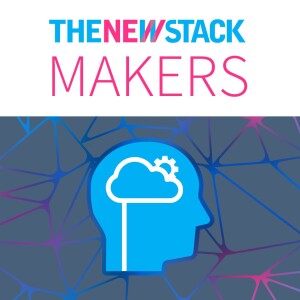
The story goes something like this:
There's this marketing manager who is trying to time a launch. She asks the developer team when the service will be ready. The dev team says maybe a few months. Let's say three months from now in April. The marketing manager begins prepping for the release.
The dev team releases the services the following week.
It's not an uncommon occurrence.
Edith Harbaugh is the co-founder and CEO of LaunchDarkly, a company she launched in 2014 with John Kodumal to solve these problems with software releases that affect organizations worldwide. Today, LaunchDarkly has 4,000 customers and an annual return revenue rate of $100 million.
We interviewed Harbaugh for our Tech Founder Odyssey series on The New Stack Makers about her journey and LaunchDarkly's work. The interview starts with this question about the timing of dev releases and the relationship between developers and other constituencies, particularly the marketing organization.
LaunchDarkly is the number one feature management company, Harbaugh said. "Their mission is to provide services to launch software in a measured, controlled fashion. Harbaugh and Kodumal, CTO, founded the company on the premise that software development and releasing software is arduous.
"You wonder whether you're building the right thing," Harbaugh said, who has worked as both an engineer and a product manager. "Once you get it out to the market, it often is not quite right. And then you just run this huge risk of how do you fix things on the fly."
Feature flagging was a technique that a lot of software companies did. Harbaugh worked at Tripit, a travel service, where they used feature flags as did companies such as Atlassian, where Kodumal had developed software.
"So the kernel of LaunchDarkly, when we started in 2014, was to make this technique of feature flagging into a movement called feature management, to allow everybody to build better software faster, in a safer way."
LaunchDarkly allows companies to release features however granular an organization wants, allowing a developer to push a release into production in different pieces at different times, Harbaugh said. So, a marketing organization can send a release out even after the developer team has released it into production.
"So, for example, if, we were running a release, and we wanted somebody from The New Stack to see it first, the marketing person could turn it on just for you."
Harbaugh describes herself as a huge geek. But she also gets it in a rare way for geeks and non-geeks alike. She and Kodumal took a concept used effectively by develops, transforming it into a service that provides feature management for a broader customer base, like the marketer wanting to push releases out in a granular way for a launch on the East Coast that is pre-programmed with feature flags in advance from the company office the previous day in San Francisco.
The idea is novel, but like many intelligent, technical founders, Harbaugh's journey reflects her place today. She's a leader in the space, and a fun person to talk to, so we hope you enjoy this latest episode in our tech founder series from The New Stack Makers.
More Episodes
 2022-05-03
2022-05-03
 2022-03-29
2022-03-29
 2022-03-01
2022-03-01
Create your
podcast in
minutes
- Full-featured podcast site
- Unlimited storage and bandwidth
- Comprehensive podcast stats
- Distribute to Apple Podcasts, Spotify, and more
- Make money with your podcast
It is Free
- Privacy Policy
- Cookie Policy
- Terms of Use
- Consent Preferences
- Copyright © 2015-2024 Podbean.com






